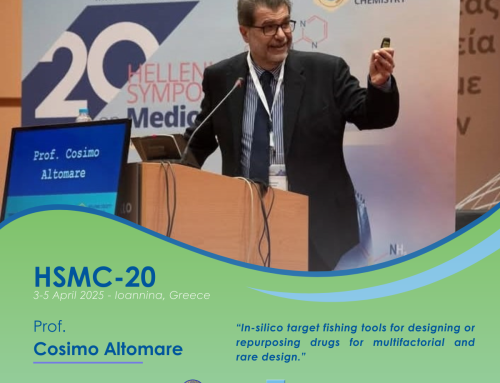Twelve international students enrolled at the University of Rome Tor Vergata in the “GRiP Master Programme in Paediatric Medicines Development and Evaluation” have now reached the end of the course.
The Master has been awarded by the University of Rome “Tor Vergata” School of Paediatrics in collaboration with the Children’s Hospital Bambino Gesù and the EU Project “Global Research in Paediatrics” (GRiP). The GRiP Master-Thesis presentation and Graduation took place on September, 23rd, 2016 at Villa Mondragone, the conference site belonging to the University of Rome Tor Vergata (Italy).
We have interviewed Dr. Lucia Ruggieri, one of the Italian student.
Can you provide with an overview of your thesis’s theme?
My thesis dealt with the extrapolation of efficacy of antiretrovirals from adult studies to paediatric population. In other words, I have reviewed paediatric development programmes of agents used to treat HIV infection to verify which type of data have been provided and generated to demonstrate the efficacy/safety profile of the medicines.
This analysis has demonstrated that there are data that have not been generated in the target paediatric populations, but have been “borrowed” from evidence available in adult settings.
This approach is defined as “extrapolation” and it is an important tool to inform the planning of a paediatric medicine development programme, possibly allowing for a reduction in data requirements for conclusion in paediatric populations.
Extrapolation of efficacy from adult studies has been extremely useful for HIV treatments, allowing to avoid unnecessary studies and to only enrol paediatric patients in trials addressing the most relevant medical needs.
Why did you decide to focus on that specific topic?
The topic has been suggested from my supervisors at the European Medicines Agency (EMA). I asked them to be involved in a “hot topic” and they proposed me to analyse the development programmes of a specific class of drugs to verify how much they rely on extrapolation. For applicability of extrapolation in clinical research and its acceptability at regulatory level, several conditions have to be fulfilled. The European Medicines Agency is hardly working to provide guidance documents for companies and researchers on this topic. Just few days before I started my work placement, a Reflection Paper has been issued by EMA and a milestone debate has been held in May 2016 during the public workshop on extrapolation of efficacy and safety in medicine development.
Overall, how do you evaluate your experience of the GRiP Master?
The GRiP master has been a very relevant experience. If I have to indicate the main three points of strengths I can suggest: the possibility to be in touch with a large plethora of experts and topic leaders in the world, the e-learning structure of most of the course and the high-level quality of the whole organization. So I have to positively evaluate this pilot version of the master, suggesting other researchers and students in the field to attend the next edition, as soon as it will be proposed.
How do you think you can spend the gained competences in your everyday work in your institution? What’s the added value provided by the master?
Beside on the specific topics learnt thanks to the master, I suppose that one of the most valuable gained competence is the critical evaluation and proposal of paediatric drug development programmes, using a systematic methodological approach. Moreover, since all the students have different education backgrounds, it has been very relevant to exchange opinions and work with them. This creates the conditions for the collaborative work that is at the basis of paediatric clinical research.





